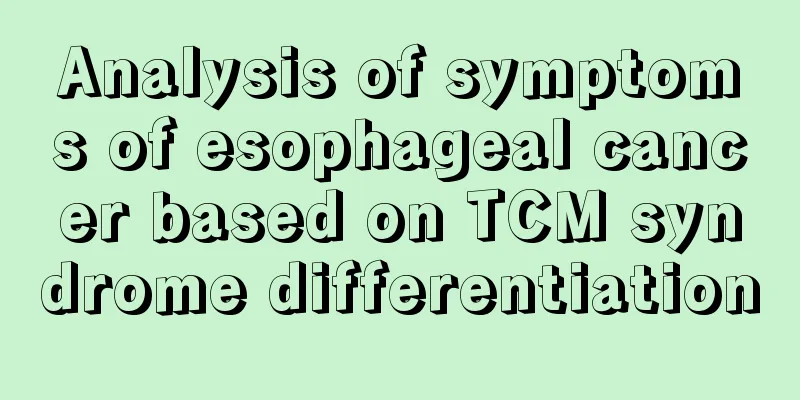What tests are needed to diagnose colorectal cancer

|
Although the incidence of colorectal cancer is very high, the symptoms of this type of disease are not obvious, so a diagnosis of colorectal cancer must be made through some examinations. The diagnosis of colorectal cancer mainly includes the following items. 1. Fecal occult blood test. Since colorectal cancer often presents with varying degrees of bleeding due to mucosal erosion and ulceration, a simple and easy fecal occult blood test can be used to monitor colorectal cancer. Early fecal occult blood tests were chemical colorimetric methods, and commonly used reagents were benzidine or guaiac, etc. In recent years, they have gradually been replaced by more specific immune occult blood reagents. However, since the fecal occult blood test cannot distinguish between cancerous and non-cancerous bleeding, it is currently mostly used as a preliminary screening method for large-scale population colorectal cancer surveys. However, a small number of early cancers may also present false negative results and lead to missed diagnosis. 2. Rectal mucus T antigen test. Also known as the galactose oxidase test, it is a simple method to detect specific markers of colorectal cancer and precancerous lesions. As long as the liquid on the rectal finger cot is smeared on a special paper film or glass slide, the galactose oxidase reaction and Schiff's reagent color development can be used to determine whether the patient's intestinal mucosa expresses T antigen. Clinical and general surveys have verified that this method has a high sensitivity and specificity for the detection of colorectal cancer. Its use in general surveys has a complementary effect with the immune occult blood test for colorectal cancer screening, but there are also certain false positive and false negative rates. 3. Endoscopic examination. It has been widely promoted and applied in clinical practice. For experienced endoscopists, routine X-ray examinations are often used. Full colonoscopy is especially recommended for clinical patients with highly suspected colorectal cancer to avoid missed diagnosis. Because fiber colonoscopy is safe and reliable, it can not only examine the size, shape, location, and mobility of the tumor, but also perform polyp or early micro-cancer resection, and can take tissue for biopsy of suspicious lesions. Therefore, it is currently the most effective means of diagnosing colorectal cancer. In colorectal cancer screening, it is often used as the "gold standard" to evaluate the effectiveness of various initial screening tests. In addition, colorectal cancer examination items also include other examinations, such as B-type ultrasound examination, CT tomography, magnetic resonance imaging, angiography, lymph node 99mTc isotope scanning, etc. for clinical colorectal cancer diagnosis, and the evaluation of the results varies. What tests are required to diagnose colorectal cancer? The above is a detailed introduction for you. I hope it will be helpful to you. Choosing a treatment method as early as possible will be of great help to you and restore your health soon. |
<<: Diagnosis criteria for colorectal cancer
>>: What are the key points in diagnosing colorectal cancer
Recommend
Prevention and care of facial paralysis
Everyone must be particularly interested in knowi...
The difference between Yunnan ham and ham
There are many kinds of ham on the market. People...
Symptoms of masochistic personality, eight of which are shown here
Masochistic personality often occurs in women, be...
What are the effects and functions of homemade Cornus officinalis?
Traditional Chinese Medicine is a very profound b...
What are the dangers of lipolysis injections
Losing weight is a very painful thing, because yo...
What is the cause of the lump under the skin on the back?
There are many reasons for skin lumps, but most p...
Symptoms of mid-to-late stage bladder cancer
Bladder cancer is the most common malignant tumor...
Burning sensation when applying aloe vera gel on face
Aloe vera gel is a skin care product made from fr...
Bee Flower Shampoo
A woman's sexy beauty is not only reflected i...
Is kidney deficiency hereditary?
Many young couples are diagnosed with kidney defi...
Does smoking and drinking have an impact on prostate cancer? Factors that cannot be ignored in inducing prostate cancer
Does smoking and drinking have an impact on prost...
Can babies drink fresh goat milk?
Can babies drink fresh goat milk? Compared with c...
Can neurosis be inherited?
If a father or mother has a mental illness, will ...
What ingredients can be baked on a baking tray
Many people want to try making barbecue at home. ...
Symptoms of heart disease
Coronary heart disease is now a relatively common...









